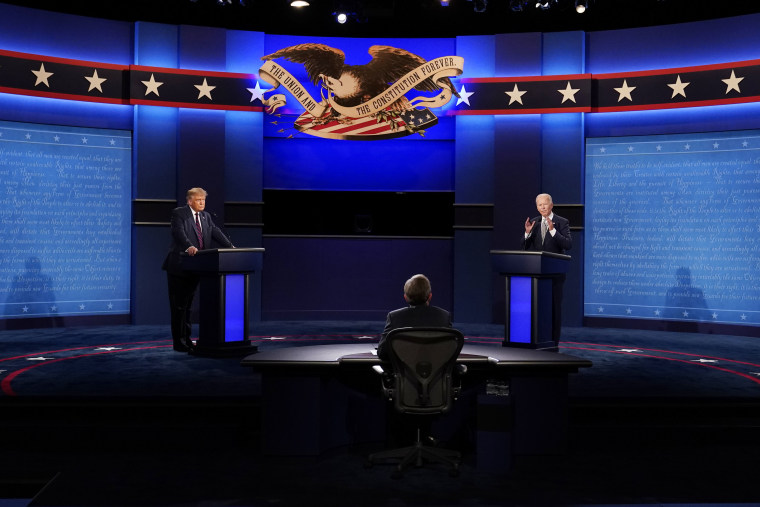Those who’ve waited patiently for Republican voters to come to their senses about Donald Trump, his 2020 election defeats, and the bonkers conspiracy theories surrounding “Big Lie” should probably give up. CNN’s report on its latest national poll paints a bleak picture on this front.
The share of Republicans and Republican-leaning independents who believe that President Joe Biden’s 2020 election win was not legitimate has ticked back up, according to a new CNN poll fielded throughout July. All told, 69% of Republicans and Republican-leaners say Biden’s win was not legitimate, up from 63% earlier this year and through last fall, even as there is no evidence of election fraud that would have altered the outcome of the contest.
Circling back to our earlier coverage, in the immediate aftermath of the 2020 election, as Trump scrambled to convince his followers that he had won the race he lost, there was plenty of polling data suggesting that his lies were having the intended effect: Most Republican voters actually believed the nonsense.
As regular readers know, I initially hoped that reality would set in gradually over time. It seemed plausible to think that some of the early polling — during the presidential transition period, for example — was driven by more of an emotional reaction than a meaningful assessment of the facts. Many GOP voters were led to believe that Trump would win, so perhaps their initial rejection of President Joe Biden’s victory was a combination of reflexive surprise and anger.
What’s more, as the 2020 race faded from view, Republicans failed to produce any evidence to substantiate the lies, and policymakers’ attention shifted to governing, common sense suggested that even GOP die-hards would move on.
They have not. In fact, my naïve hopes about a gradual acceptance of reality have been dashed in dramatic fashion. Election Day 2020 was more than 1,000 days ago, and the percentage of Republican voters who are still getting this wrong isn’t just too high — we’re talking about more than two-thirds of the GOP electorate — it’s also moving in the wrong direction.
Does this matter? Are there are any meaningful consequences to so many Republicans embracing such brazen lies? I continue to believe the answer to both questions is yes.
In fact, we’ve already seen some of the real-world results. Ahead of the 2022 elections, polls showed similar percentages of GOP voters believing the “big lie,” which in turn led the party to nominate far-right and unelectable election deniers in many key races nationwide. Democrats had an unexpectedly strong 2022 cycle in part because a radicalized Republican base backed candidates who shared — or at least pretended to share — their ridiculous beliefs.
All of this also matters to the extent that GOP policymakers in state capitols have weaponized election denialism to justify new voter suppression policies.
But there’s also a forward-looking relevance.
There are a variety of factors that have elevated Trump to frontrunner status in the race for his party’s 2024 presidential nomination, but polling data like this helps explain his electoral strength.
As far as 69% of Republican voters are concerned, Trump not only won in 2016, he also won in 2020, no matter what reality says about the results. For much of the GOP electorate, the calculus is no doubt straightforward: As the party looks for the best possible contender for the 2024 race, why not go with the candidate who’s twice already proven he can win?
In other words, as Republican voters continue to embrace this obvious nonsense, the more important their rejection of reality becomes.
This post updates our related earlier coverage.

